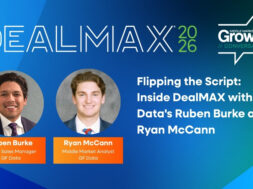How Public Scrutiny of ESG Impacts Private Equity’s Investment Strategy
In the public markets, 'ESG-washing' is a growing concern. MMG looks at how private equity ESG investors might be affected.

It’s difficult to overstate the growth that environmental, social and governance (ESG) investing has experienced in recent years, as an estimated $40 trillion in total assets now carry the ESG label. Yet researchers have found that a significant portion of those investments in the public sphere are not actually aligned with ESG’s principles of responsible business practices, a revelation with potentially significant implications for private equity’s interest in the space.
“ESG is something that, in the public sector, is trendy,” says Benjamin Kunde, executive vice president of international investigations at Interfor International, a security consulting firm. “What we’ve found is it’s been trendy, but diluted through greenwashing and ESG-washing – meaning everyone just slapped this label on, and felt they could get away with it.”
ESG is something that, in the public sector, is trendy…everyone just slapped this label on, and felt they could get away with it.
Benjamin Kunde
Interfor International
Recent revelations of so-called “ESG-washing,” however, are casting doubts among public investors as to whether their investments are truly fueling sustainable and responsible business operations. At a time when private equity’s interest in ESG continues to climb, some experts warn that the threat of public scrutiny may be too large a burden to bear in the private markets, too.
Lifting the ESG Veil
At the start of the year, analysts saw no signs that public investors’ appetite for ESG would slow down, with Bloomberg predicting ESG assets would reach a $53 trillion valuation by 2025.
More recently, however, researchers have begun to sound the alarm over the ESG label, warning that many of the ETFs, loans and other investment vehicles carrying the ESG name are not actually aligned with ESG principles.
Analysis from Bloomberg revealed about $8.3 billion of assets linked to ESG funds can be traced back to Russia, including holdings in oil giant Gazprom, for example. Those findings followed a decision by Morningstar Inc. researchers in February to remove the ESG label from nearly one-fifth of ESG funds analyzed after concluding those funds do not actually integrate ESG factors into their investment selections.
In an interview with Bloomberg, Paul Clements-Hunt, the founder of The Blended Capital Group and the creator of the ESG term, warned of the “marketing mania” that has “sprinkled ESG fairy dust” on investment products.
“Anybody who uses ESG, sustainability or green purely as a marketing device is really heading for trouble,” he said.
Now, the U.S. Securities and Exchange Commission has flagged ESG as one of its examination priorities for the year, laying the groundwork for even more heightened scrutiny of the ESG label in the public markets.
PE Prioritizes Due Diligence
The surge in investors’ ESG interest is not isolated to the public markets. A 2020 report by the US SIF found an estimated $716 billion of ESG assets were managed by alternative investment vehicles, including private equity firms–a figure that has almost certainly risen as PE firms increasingly include ESG as part of their investment criteria.
PwC’s 2021 Global Private Equity Responsible Investment Survey revealed that the majority of PE firms surveyed say they discuss ESG as part of their executive board agenda, while 72% screen target companies for ESG risks.
That figure emerges within the context of PE firms strengthening their due diligence practices overall. Kunde says he’s seen more small and medium-sized private equity firms come through Interfor’s doors in the past couple of years than ever before as they pursue more sophisticated due diligence capabilities.
Related content: Why ESG Is Here to Stay
Yet when it comes to ESG investing, it’s the “governance” aspect that tends to dominate private equity firms’ due diligence focus, particularly against the backdrop of the invasion of Ukraine and resistance against exposure to Russia, Kunde said. Meanwhile, PE firms tend to be less concerned about the environmental and sustainability aspects of their investment targets, unless, according to Kunde, there are glaring shortcomings, such as a major oil spill.
“Some of them have said, ‘We have always had ESG in the back of our minds, but we never pursued the label, because it’s just a label,” he notes.
It’s a trend Michael Korengold, president and CEO of impact investing firm Enhanced Capital Partners sees, too.
“Most private investors do not prioritize ESG, or they don’t hold themselves out to be impact investors,” he says. That’s not to say ESG isn’t on the minds of their limited partners, however. “There are certainly plenty of LPs and potential LPs that would pass on a fund if it were engaged in certain types of investing that those investors felt ran afoul of their ESG objectives,” Korengold adds.
The Future of ESG in Private Equity
With PE firms already elevating their risk mitigation efforts, the heightened public scrutiny of ESG could turn some private investors away from the space.
“Our private clients are a little more hesitant to jump on that [ESG] bandwagon, because they now realize that it does come with increased scrutiny,” says Kunde.
Yet some analysts have predicted that the elevated scrutiny of the public market could actually encourage some public firms to go private, potentially creating new investment opportunities for PE firms. In an opinion piece, the Wall Street Journal’s editorial board has argued that the SEC’s proposed requirements for climate impact disclosures could “saddle companies with new costs, discourage private firms from going public, and encourage some public firms to go private.”
There is a very fast pace of development in and around ESG, impact investment, tracking and reporting. It’s all for the good.
Michael Korengold
Enhanced Capital Partners
And as scrutiny gives way to more standardized methods of assessing ESG practices within the public markets, the ESG name may evolve from trendy label into a more legitimate and transparent investment category for private investors.
In that case, Korengold says, the elevated scrutiny of today could be a positive development for tomorrow.
“There is a very fast pace of development in and around ESG, impact investment, tracking and reporting. It’s all for the good,” he says. “It wasn’t that long ago that there was a perception that there weren’t reliable standards. Those days are gone, and they’ve given way to a number of agreed-upon frameworks and metrics for testing whether a firm is or isn’t defining and meeting its impact and ESG objectives.
“Which is great for the firms,” Korengold continues. “It’s great for potential investors, and it’s great for everybody who’s interested in this area becoming a more mature way to measure how a firm performs–besides just investment performance.”
Related content: On the Front Lines of ESG: How PE Portfolio Companies Can Start Impacting Tomorrow Today


